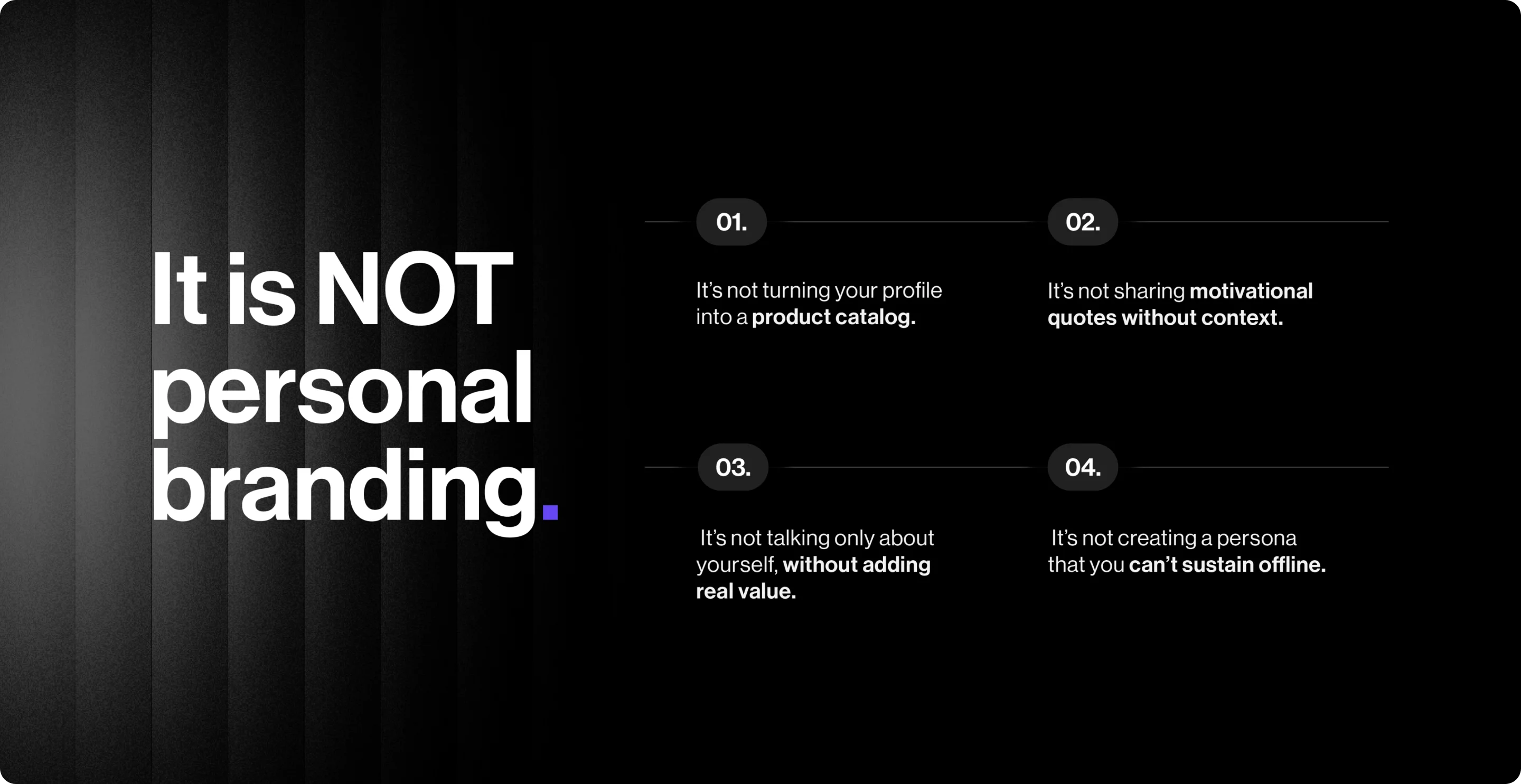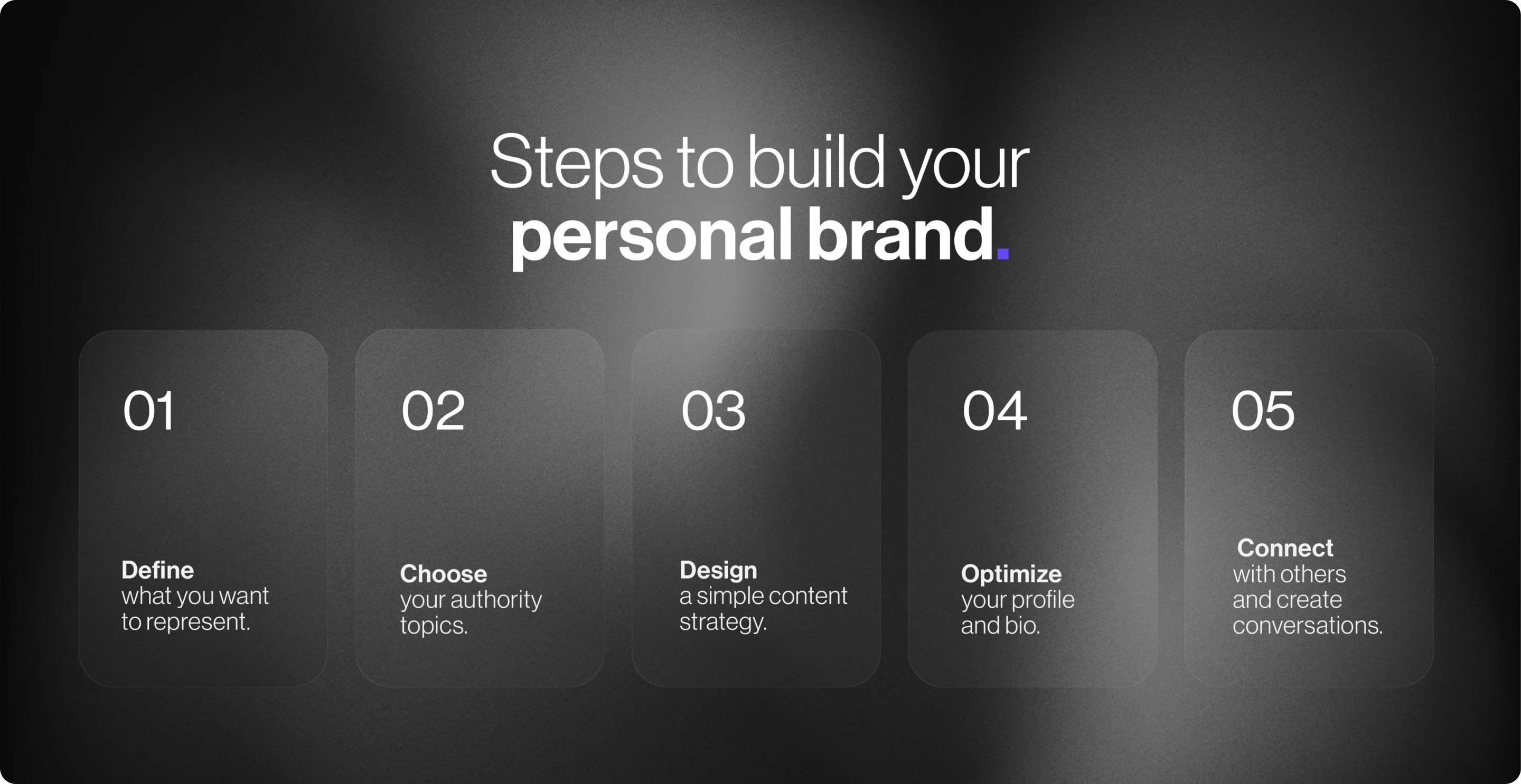The logo no longer sells: How to build a personal B2B brand that generates trust (and sales).
In the B2B world, many companies are obsessed with the logo, website and corporate brochures. But the truth is that businesses don't buy from logos. They Buy from People
those they trust. And for that, you need something more powerful than a visual identity: Do you need
a personal brand.
In B2B, selling is complex, consultative and long-term. It's not just about selling a product, it's about building a relationship. And in that scenario, Trust is the most
valuable. Personal branding doesn't replace corporate branding, but power, It does
more human and connects her to the right people.
This becomes even more relevant when we talk about leadership roles, sales,
business development or consulting. In all of these cases, Your Presence, Your Voice and Your
Perspective can be the difference between a lukewarm lead And a High Business Relationship
value.
In an ecosystem saturated with content and promise, people aren't looking for experts.
Search for referrals. People who make them feel: “this person knows what they're talking about,
I like him and I want to learn more.” When it's time to buy, You already
they know, they already trust you, and you're several steps ahead.

An effective personal brand is based on consistency, authenticity and strategy.
And most of all, the clear premise that content should serve someone else, not just you.
Before you post anything, take a moment to think about this:
Your personal brand starts with a clear narrative: this is what I do, this is why I do it,
and that's how I do it differently.
You don't need to talk about everything, you need to become synonymous with something specific. Una
Good personal branding strategy in B2B starts from 2 to 4 thematic axes in which
you can constantly provide value. Some examples:
The key is to choose topics that you master, that you are passionate about and that your audience values.
You don't need to post every day. But yes you need to be consistent. Trust isn't built with a viral post, but with a sustained presence. You can use a
base format like this:
In addition, you can alternate formats such as carousels, short videos, polls or captures
of real conversations (with permission, of course).
Your LinkedIn profile or any other professional network must answer three questions in
Less than 10 seconds:
A personal brand is not a monologue. It's a network of conversations. Reply to comments, write direct messages with real intent, participate in events of the
sector (online and offline), share content from other people you admire.
Your digital presence must be an extension of what you are like in real life: curious,
respectful, generous with your knowledge. Thus, the day someone thinks of a supplier, ally or referent, your name will be the first they remember. All of this impacts on the
business.


When people know your name, they read you often and associate you with issues of value, The doors open much easier.
All these cases have something in common: it's not about “being influencers”, but about being referents.
Showing yourself, writing, sharing your ideas is scary. And that's fine. But it also gives
results. Each post is an opportunity to connect with someone who is looking for exactly what you know.
You don't need to be perfect. You just need to be consistent, honest and generous With what
Do you know. B2B relationships are not built with perfection, but with presence.
In a world where everything is the same, your own voice makes the difference. A brand
well-worked staff not only positions you better, it also makes you more visible, more
reliable and more attractive to decision makers. And that, in B2B, translates into real business.
Start today. Share an idea, an opinion, a story. Show your voice. The network is
full of people who need what you know. But to find yourself, you must first
To speak.
If you want to learn more about how to use personal branding to accelerate business relationships, listen to our B2B Time podcast. You'll find real examples,
interviews with experts and practical tips for implementing this strategy in your organization.